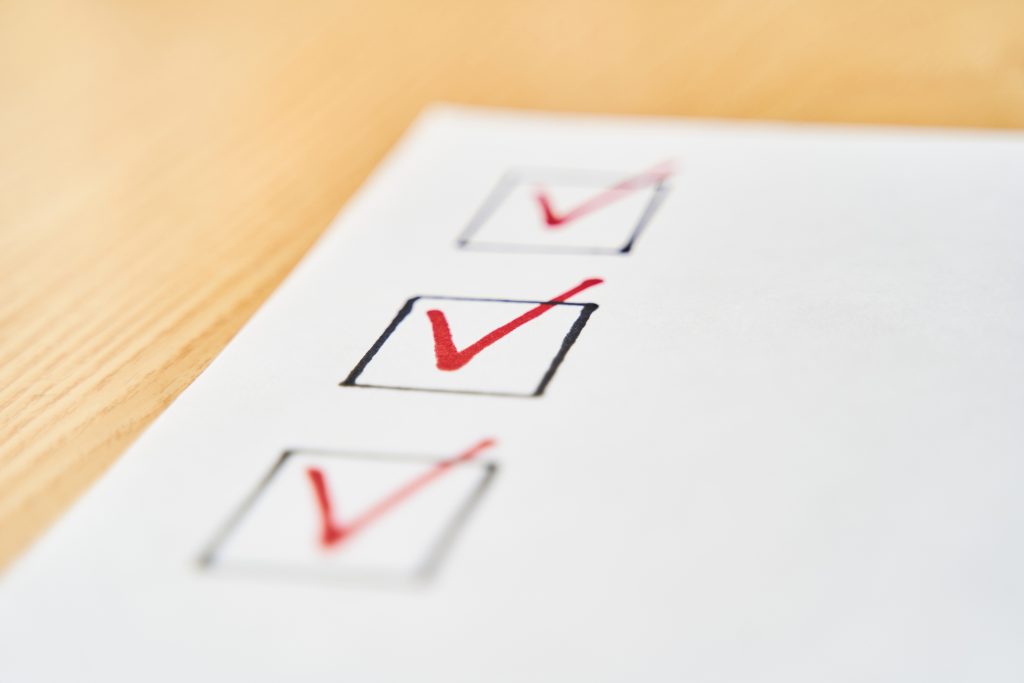
Telephone canvassing - an almost perfect tool to attract new customers and make more sales. After all, it's always just a phone call. No more and no less. Actually quite simple and then so difficult. Sometimes. You want to be successful? As a result of a personal conversation with a potential customer on the phone you want an appointment, or even an order? Then you absolutely have to be well prepared and follow a few important rules. How you can turn almost any call into a good conversation or even get an appointment - we'll tell you.
Telephone sales calls are a very classic acquisition tool. At this point, one also speaks of cold calling. What's the difference between cold calling and warm calling, when you talk to someone you already know? Well - cold calling is contacting a potential customer with whom you have not yet had a business relationship.
This is not only a real nightmare for many. It is also simply only allowed under one condition: Namely, exactly when your offer for Interlocutor is possibly interesting or useful, you may call even without a specially granted consent. However, you can assume this if you start with telephone canvassing in a targeted, planned and well-prepared manner.
It's about making sales calls on the phone with Peoplewho you don't know, but to whom you would like to introduce your product or service. Telephone customer acquisition. You are professionally qualified, you are familiar with your offer and yet you have had little success so far? Just between us: If there was an alternative to telephone canvassing - would you choose it? And if so: why? Because you might feel like you're getting turned away on the phone or it's so hard to get through to the right person for the job? It would feel pretty good if that were different, wouldn't it? Well, that's not a problem.
The solution is to keep at it. Absolutely. Why? Because telephone canvassing is an incredibly powerful tool in sales. It is a tool that can be planned and targeted for success. So: Giving up doesn't count and neither does shirking. See telephone acquisition as your new sport. It is worthwhile to train it. In the following we will show you how to do it. With our tips, you will arouse the interest of potential customers for your offer and, by the way, optimise your new customer acquisition. Sounds good, doesn't it? Let's go!

In order for telephone canvassing to really work (and above all work well), you need three things: The right mindsetthe understanding for 'the other side' and a plan. By the way, you already have the right mindset ...
In the word Set it's already in there: different ingredients are meant, like in a fine dish, for which you also need different ingredients to make it really good. At positive mindset is about cognitive skills that, when properly combined and used, will do exactly what you want them to do.
The good news: First of all, you already have all these skills, and secondly, you're already using them. Every day. However, mainly in the private sphere. Namely to address people with whom you had no previous point of contact, for example at the bakery, at the market or at a party..
Also important to a good acquisition mindset: the ability to morally classify. Of course, you should be convinced of your product or service, be able to identify with it. That is the prerequisite for an authentic appearance and credibility. So you certainly don't pick up the phone and have a guilty conscience about the reason for your call, do you? Look at it this way: We humans are not perfect, and neither are our products and services. If we were, we wouldn't develop them further, which would have completely different consequences. So you offer something and the customer may or may not accept it. You don't have to worry about it: On the other side there is certainly someone who can evaluate and decide - but that is not you!
The last important mindset ingredient is positivity. This YES to success. Remember the first questions we asked you here. Most people who are at war with telephone canvassing automatically say to themselves: 'Man, this probably won't work out anyway'. Why do you do something like that, why do you allow such statements? Well, that's how you take the pressure off yourself. That 'I told you so'. You know what's meant. You'd better be prepared for your client to show interest, for an appointment to be possible, for the outcome of your cold call to be a good one!
You are calling someone who, in case of doubt, has never heard of you. What's important now: Put yourself in the position of your conversation partner, in the situation in which you call him and he has not expected you. Maybe he is preparing a contract, a meeting or a presentation and actually needs his rest, has just (or mostly) no time at all? The good preparation of the conversation, the research (we will go into this in more detail) is therefore an indispensably important point. Just like empathy. It helps you understand your potential customer and their particular point of view.
Tip: As part of your research, use not only the homepage of the company you want to contact, but also the business networks. XING and LinkedIn. Make yourself as far as possible a concrete picture of your contact, read how and what he writes, posts, etc.. So you get the feeling that you already know him a little. This will not only help you to lose your first inhibitions - it will also help you in the conversation. Maybe there are topics you can refer to?
But beware: You should definitely do the research on your contact yourself. This is the basic prerequisite for the success of your acquisition mission. If you let others do it or even consider buying addresses, you will unfortunately lose important information left and right. Finally, the evaluation of information is very individual. Everyone considers other facts to be meaningful and valuable!
If you have a plan, telephone canvassing will be easier for you. This means a plan that outlines how, but above all what you will talk about with your counterpart, how you could react in possible scenarios. After all, you want to present your offer in the best possible way. However, you will only be truly successful in such a phone call if you can clearly articulate the benefits of your offer. So what will your interviewer gain from accepting your offer? Consider beforehand which arguments will be the best. Put yourself in the position of the person you are talking to and deal with his or her topic and situation individually. Why should he accept your offer? Does he have any advantages - if so, what are they?
Tip: Don't go through your plan alone in silence, if possible; it's best to find sparring partners. It is more pleasant, makes more sense and is actually easier to consider approaches with team members. Advantage: This way you have a real corrective and greater chances of success, because you are already practicing in a relaxed atmosphere and in a conversational situation. You will remember during your phone call - and this is exactly what is used for lightness and security and take away your tension.

That's part of it: A quantifiable goal. Something like: This week I want to research 20 contacts in detail, I want to have 10 appointments with potential new clients to show for it, etc. Make clear which target group is the right one for you and your company and why. Who needs what you have to offer? What problem are you solving and which target group is most excited about it? For whom is your offer exceptional? As you can see, this will save you time and rejections where they don't have to be.
Calling the head office and asking for 'the employee from purchasing'? To be successful with phone canvassing, you should know exactly who you want to talk to. This is your homework. If you neglect to research your potential customers, in other words, if you don't take enough interest in your customers, you're making a big mistake. Without really detailed preparation, you better not pick up the phone. Why? Well, should you even get to the possibly right contact person (which is a stroke of luck and could not have been planned), he will immediately notice that you do not really know his company, his topics and have not understood them. Nobody conducts such time-robbing conversations. You will not only be unsuccessful at that moment. You also "burn" this contact for the future, i.e. keeping in touch will not be possible because it will not be reciprocated.
So plan enough time for the research. Create a research guide that tells you what kind of information you want to look for.
Tip one: Research the (right) people in your target companies. Collect as much information as possible. Everything that can be researched publicly: career, current position, perhaps also publicly accessible private things, hobbies etc. XING and LinkedIn are good sources here. What do my contacts look like, what do they value? How are you going to talk to these people? Look closely, be open-minded and empathetic. Allowed beforehand: calling the company and asking for the right person and their extension. Equipped like this, the really important phone call will start much more relaxed for you.
Tip 2: If possible, research not only one contact person in your target companies, but better several. Why this effort? Because nowadays it is no longer just one person who makes important decisions, but usually a whole team. It discusses with each other, consults and decides together. A nice side effect: If you don't get on with one contact person in the company, it might work out with another from the team.
Compile all the information for each phone call separately, individually. Put all the facts in writing: What do you want to discuss, what is your agenda, what do you open the conversation with - why are you actually calling? That sounds time-consuming? Maybe. But it will help you to intuitively react correctly. This way, you will automatically put your contact person in the center of attention. After all, you want to build relationships.
Your contact person will probably not have much time for a phone call. So you need to get to the point quickly and clearly. Therefore, think about a short and memorable presentation of you, your company and your offer - an elevator pitch. You should be able to name it all in four or five sentences. This can be practiced well. Elevator pitch and agenda including your offer will support you and take away the nervousness before your phone call: The pitch will attract attention and the agenda, including the detailed offer, will ensure that you don't forget anything important or get into a tailspin with unexpected questions.
Before you start with the telephone acquisition, think about how you want to measure your success. A simple Excel spreadsheet and dividing the calls into groups is enough for this: Sort your phone calls according to whether documents were requested, an appointment or a visit was arranged, for example. Was general interest expressed and you may call again at a later time when it suits better? Or did you receive a clear rejection? This is how you keep track!
Take notes! Note down details: what was asked for, what was the reaction to your offer, etc. - all this will help you for the following dates.
Your contact person should ideally have time and leisure to deal with you and your offer. The best prerequisite for this is an appointment that is already in his calendar.
Tip: Make an appointment in advance by phone or email. Make the effort and write personally and individually. Ask for appointment suggestions that suit your contact well. If you give your chosen contact the option of declining a call, this is extremely professional and sympathetic. A good start! Trust is the key. And then you're ready to go!
No, you don't have to obsessively wear a suit to feel more important or serious during the phone call. It doesn't matter if you prefer to sit, stand or walk around while talking on the phone. Either way, though, you should feel comfortable. Whatever makes you feel successful is allowed. A coffee can be helpful, your favorite song turned up really loud beforehand, or whatever. Feel free to create a pleasant atmosphere in which you can work in a concentrated and undisturbed way. Take about two hours per telephone canvassing session. Don't just do it in between.
So now grab your phone, your agenda, your quote and get to it!
Tip: As a warm-up, talk to potential prospects whose rejection wouldn't be so bad. You will see how the tension eases and the beginning becomes easier.
You know you're interrupting the person you're calling. A phone call is always an interruption. You know the person you're calling is going to wonder: Who is that on the phone? You are prepared for that: State your name and company. Clearly and distinctly.
The next question the person called will probably ask is: How does this person know me? That's why you should also answer this question openly or anticipate it - before they have to ask where you got the data or the number. Don't be afraid to admit that you did some research. This signals commitment and your contact person understands an important message: The caller really went out of his way, so he really cares about me. Okay, I'll listen to him, too.
Of course, the person you're calling is now wondering why you're calling them at all. That's your bet - your offer: What's in it for the potential customer? What do you have to offer him? Very personally - not just for the company he works for. You have prepared yourself - now you may explain which problem you solve, which situation you improve for him. Use concrete examples from the company's everyday life if your interviewer shows interest.
Mention a keyword and ask if you can tell them what exactly you are proposing. The person you're talking to will almost certainly want to know more.
Otherwise, pay attention to the mood, listen, active. A Sales pitch is not a monologue - stay attentive, take information from the conversation. Get to the point and avoid long 'beating around the bush'. Keep the small talk short and crisp. Don't pander, but give your counterpart the upper hand. The customer is the focus. So don't argue from the first-person perspective: Don't you send to your client, but he receives something from you soon. You see the difference?
Ending a telephone acquisition conversation does not mean saying 'goodbye' and hanging up. At the end you clarify what the next steps can be and end with an agreement. In the best case, this can be a face-to-face meeting to calmly answer any questions or negotiate an individual offer. But it can also be a written offer that you submit later or a later, renewed contact. Therefore, definitely try to find out, when you may approach your contact again. Enter the period as a reminder in your calendar. This creates a routine and is a small success that helps you move forward.
Important: In any case, write a friendly email to your interviewer and thank him or her for the interview. Formulate this message in such a way that you can get back to your contact person at any time. You will also have interesting offers in the future ... and the next time it will be a little easier, because you already know each other.
By the way: Customers buy when the right time has come. You don't know when exactly that will be, so you should maintain contact regularly from the first conversation and place your offer again and again. Statistically, it takes at least seven and up to 15 attempts to close a deal. So have Patience and stay tuned!
You are not rejected as a person. Even if what you're offering is unique - maybe the customer just doesn't need anything else right now because they're already well taken care of, the competition has already knocked on their door and was faster or even cheaper. Now sit back, take a deep breath, and know this: There's nothing wrong with this. This cancellation is just a snapshot. It doesn't say there won't be interest in the future either. Better: Keep at it! A friendly email every now and then - and you'll start to build a customer relationship.
Yes, rejections are awful, no one likes them - but they are also quite normal. They are even more common than acceptances. You can leave it at that, and you should always remind yourself of that. Set on a certain routine, on practice. The more of it you have, the less you will mind if you don't get anywhere. Look at it with a twinkle in your eye: You can only win after a rejection. After all, it can't get any worse, can it?
If a customer says 'no', then that is indeed a 'no' for the time being. Do not try to analyse this back and forth and somehow (re)interpret it. Don't go through your catalogue of objection handling now! It won't work. Accept what your customer says and leave it at that!
You've done your research and put together an argument for your customer based on your information. You can tell him why your offer is useful for him and what problems it will solve. Last but not least, you have faced your customer and his reactions. A test, so to speak. That's why you mustn't falsify the result now, you mustn't force your customer into something or talk him into something with your last ounce of strength. It won't do you any good - so see it as a test and learn from it.
100 percent success - that doesn't exist. No one is in top form at all times, not even your counterpart on the phone. Stress, deadline pressure or just getting out of bed on the wrong side - it happens and is part of everyday life. Set yourself goals, but remain realistic. Allow for the fact that not everything will always go smoothly. This is the only way to motivate yourself in the long run. And Motivation is absolutely necessary to operate successfully.

They exist because you may not have done your own research or were too superficial in doing so. Uncertainty is pretty much the worst (and at the same time the thing you can manage best). You're already excited, and then you have to call someone you don't know enough about....
No, it doesn't make your work any easier. On the contrary: You are no longer authentic if you read everything off and say exactly the same thing 10 times a day. The person you're calling hears it immediately, so it's better not to do that. Make sure you do your research and prepare yourself individually.
The conversation starter, "Sorry to call you." is used by many salespeople. But this is the worst possible way to start a marketing call. You take away your respectability in seconds and unfortunately also the necessary authority.
No, permanently addressing your customer by his full name is neither advisable nor effective. It is rather unpleasant, because we would never talk to each other like that in normal conversation.
Unfortunately, this is suggested again and again for telephone sales: to formulate questions in such a way that the person you are talking to has to answer "yes" all the time. But we all know these suggestive questions today. Each of us is sensitized. And because this is the case, they immediately lead to a bad feeling in our conversation partner. So the desired effect will not occur - then better leave it.
You have called, unfortunately, the hoped-for appointment did not come about, not to mention an order? Well, if you now lose sight of this potential customer, because he still is, then that is not only a pity. Make sure you think about a follow-up and stay on it, contacting at sensible intervals. Maybe your client will reach out at a later date?
Salespeople who laugh to themselves all the time, who think everything a customer says is 'super good' and funny great? Who spread compulsive cheerfulness? Good mood as an avoidably perfect setting - that's awful, unprofessional, not real life, and annoying. Your client will immediately shut down inwardly in disgust. Better: avoid it!
Honestly: Stay the way you are. Many sales and rhetoric training courses try to train behavioral patterns that supposedly guarantee success. Unfortunately, this is not the case. As soon as you are no longer yourself, no longer talk the way you normally do, learn sentences by heart - well, the more likely your conversation partner will notice that. And unfortunately they won't like it. The only thing that counts is your Authenticity. Stay true to yourself!
No human being can be attentive for more than 30-50 seconds. Unfortunately, our attention span is simply limited. A lot of information doesn't make that better. But if you tell everything that is really great about your offer, without point and comma in forever long sentences - well, then not much will stick and not much positive will happen in the end. Unfortunately. So: less is more. Listening is even better.
You can do that. But: Does the competition have to get any space at all in your telephone canvassing appointment? So better leave it and use the time to talk about the advantages of your own offer. Avoid at all costs: Badmouthing the competition.

Telephone canvassing is a really good tool for developing new clientele for your business. It's easy to use, easy to plan, easy to execute, and if you follow all the tips listed, it will lead to success. And you can practice it. After all, you never stop learning - so keep taking additional communication and marketing training - it will give you confidence and strengthen you for the conversations. Try to make friends with the telephone - if you haven't already. Make phone calls every now and then to someone on your team or friends who know you well. Ask for feedback on your demeanor, call set-up, and offer explanation. The phone is slowly but surely becoming a good friend (it probably already is in your private life). Use it for customer acquisition, but also to maintain the contacts you build up over time.
Have fun with it - we wish you much success!

